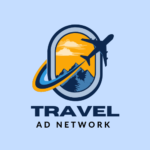Why Are Travel Banner Ads So Successful?
The travel industry now uses travel banner ads as a potent tool in the fast-paced digital world of today. They enthrall prospective tourists, tempting them to plan trips, reserve flights, and discover new places. However, why are these advertisements so successful? Marketers may produce enticing and captivating advertising that generate results by knowing the psychology underlying effective travel banner ads.

The Power of Visual Appeal
The eye-catching visual appeal of a travel banner ad is what initially draws in viewers. Wanderlust is sparked by gorgeous places, breathtaking scenery, and cozy settings captured in high-quality photography. People are more likely to interact with an advertisement when they are drawn to visually appealing imagery.
Color Psychology
In travel banner ads, color is quite important. A viewer’s impression of an advertisement might be influenced by the many emotions that different colors elicit. As an illustration:
1- Blue: Conveys calmness and trust, often associated with serene beaches and clear skies.
2- Green: Represents nature and tranquility, making it ideal for ecotourism and adventure travel.
3- Red: Evokes excitement and urgency, perfect for limited-time offers and last-minute deals.
Marketers have the ability to sway the feelings and behaviors of viewers by deliberately utilizing color.
Imagery and Emotion
In addition to color, the imagery in travel banner ads should arouse particular feelings. Images of contented families, daring lone adventurers, and passionate lovers can establish a personal connection with the viewer. Viewers are more inclined to click and learn more if they recognize themselves in the advertisement.
The Role of Persuasive Copy
In travel banner ads, the copy is just as vital as the pictures. The writing should be clear, interesting, and convincing. Here are some important factors to think about:
Headlines that Hook
The first text that a viewer will encounter is the headline. It must be both pertinent and eye-catching. For instance, “Visit Bali” is not as alluring as “Discover the Hidden Gems of Bali.” The former alludes to a special and unique encounter.
Call to Action (CTA)
To instruct visitors on what to do next, a compelling Call to Action (CTA) is crucial. “Book Now,” “Learn More,” and “Get Exclusive Deals” are examples of phrases that instill a sense of urgency and motivate quick action. The CTA needs to be obvious, straightforward, and easily seen in the advertisement.
Social Proof and Testimonials
Adding social proof, such user reviews or testimonials, can boost authority and confidence. Prospective travelers are more inclined to think about the offer if they notice that other people have had good experiences. For instance, “Join thousands of satisfied travelers who have discovered the magic of Paris.”

